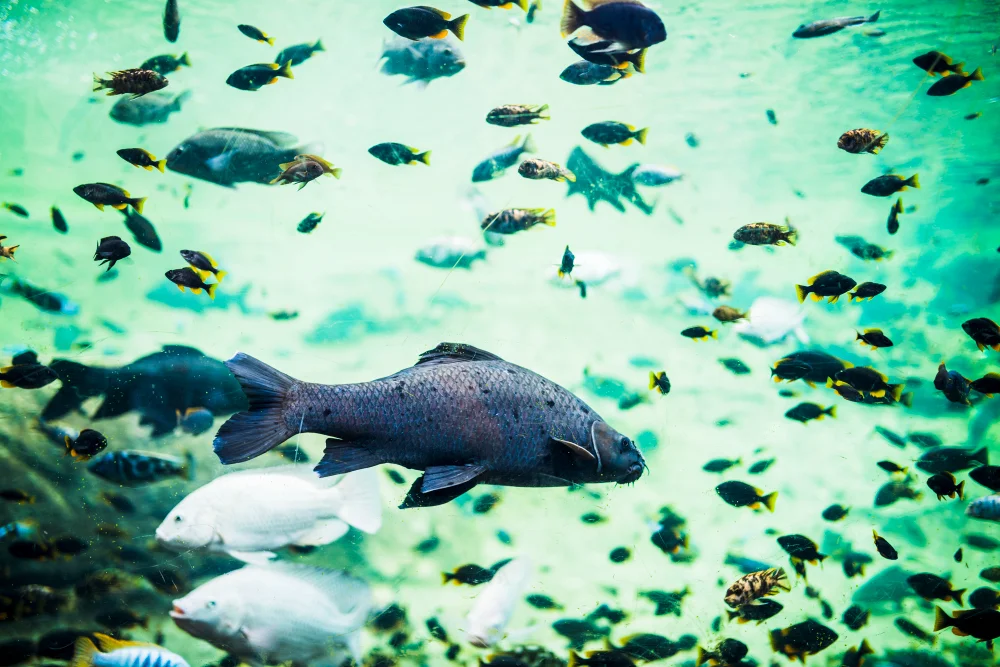Have you ever wondered if fish are aware of the very thing they live in—water? Or do they perceive it as we do the air around us—present, yet largely invisible?
I remember asking this exact question at a marine biology seminar during my second year of university. The room went silent, then curious, and suddenly what sounded like a “silly” question turned into a philosophical, biological, and neurological exploration. This seemingly simple idea holds deep implications for how animals—and even we humans—experience the world around us.
Let’s dive deeper into this fascinating intersection of perception, consciousness, and the sensory limitations of life under water.
Understanding the Question: What Does It Mean to Be ‘Invisible’?
Before we explore the fish’s point of view, we need to unpack what “invisible” really means.
For humans, something is invisible if it:
- Doesn’t reflect or block light (like air),
- Is always present and taken for granted,
- Goes unacknowledged by our senses until disrupted (think: humid air or smoke).
In this way, water might be invisible to fish—not because it has no physical presence, but because it’s their baseline environment. The real question becomes:
Do fish have the cognitive capacity to perceive water as a medium, or is it simply the “default state” of their sensory world?
How Fish Perceive Their World: The Science of Fish Senses
Fish don’t see or feel the world the way we do. Their sensory systems are designed for aquatic life, and that changes everything.
1. Vision Underwater: Can Fish ‘See’ Water?
While fish do have eyes, they’re adapted to see through water—not to see water itself.
Dr. Victoria Braithwaite, a renowned fish neurobiologist, once explained in a Nature interview:
“Fish vision is optimised for light distortion and refraction in water, not to register water as a separate object. For them, water is the transparent canvas through which everything else appears.”
That means fish see through water, not at it—just like we see through air.
Real-World Analogy:
Think about wearing your glasses all day. After a while, your brain stops noticing the frame. It’s not that it disappears—it’s just always there, so your mind tunes it out. That’s what water might be to fish.
2. Lateral Line System: Feeling the Flow
Fish possess a specialised organ called the lateral line—a network of sensory receptors along their sides that detect changes in pressure and movement in the water.
This allows them to:
- Sense currents,
- Detect nearby movement (including prey or predators),
- Navigate murky environments.
But here’s the thing: the lateral line detects disturbances in water, not water itself.
A Study Worth Noting:
A 2014 study published in The Journal of Experimental Biology revealed that blind cavefish use their lateral line system to “map” their environment—entirely without sight. But still, they never responded to water as a separate element. It’s the disruption of water that matters—not the water itself.
Consciousness and Awareness: Do Fish Even Know Water Exists?
Here’s where we dip into cognitive science and a bit of philosophy.
Are Fish Conscious of Water?
The current scientific consensus is no. Most fish likely lack meta-awareness—the ability to think about their own perceptions. They respond to stimuli (light, vibration, pressure), but don’t necessarily reflect on the medium through which those stimuli travel.
Imagine being born underwater, living underwater, and never experiencing “dry.” How would you know water was even there?
That’s the crux of it. Fish likely don’t see water as “a thing” at all—just the normal state of being.
Comparing Human and Animal Perception
We Don’t Notice Air… Until We Do
We rarely think about air unless:
- It’s too hot or cold,
- It smells,
- It’s moving (wind),
- Or it’s gone (underwater, choking).
In those moments, we become hyper-aware of something that’s always around us.
Similarly, fish may become aware of water when:
- It’s polluted or carries unusual chemicals,
- It drastically changes temperature or salinity,
- It’s moving too quickly (e.g., rapid currents).
But even then, they’re likely reacting to changes in conditions, not to the water as a substance.
What This Teaches Us About Human Assumptions
This entire question reveals more about us than it does about fish.
We assume all creatures have a similar level of consciousness or reflection. But much of the animal kingdom operates purely through instinct, sensory input, and conditioned behaviour.
Asking “Do fish think water is invisible?” is like asking:
- Do birds realise they’re flying through air?
- Do moles “see” dirt as a thing, or just the space they dig through?
It challenges our understanding of perception, experience, and awareness.
Why This Topic Matters in a Bigger Way
At first glance, this feels like an idle curiosity. But it touches on key fields:
- Neuroscience – How awareness develops
- Philosophy – What it means to “know” something exists
- Ecology – How animals adapt to their environments
- AI Ethics – What sensory awareness means for artificial intelligence systems
By asking what fish know, we refine how we define knowledge, perception, and even consciousness.
FAQ
Do fish see water?
Not directly. Their vision is adapted to see through water, much like humans don’t see air but see through it.
Can fish feel changes in water?
Yes. Through their lateral line system, fish can detect movement, vibrations, and pressure changes in the water.
Are fish aware that they live in water?
Most evidence suggests no. Fish likely do not have the meta-awareness needed to reflect on water as an entity.
What happens when the water changes?
Fish may react to changes in temperature, salinity, current, or pollutants—but they are responding to the change, not the water itself.
Actionable Takeaways
- Re-examine your own assumptions – Just as fish may not perceive water, we too may be unaware of our own environments (like digital noise, social habits, or unconscious biases).
- Appreciate sensory systems in animals – Understanding how different creatures perceive the world can shape how we protect ecosystems and design humane environments (like aquariums or fisheries).
- Question the obvious – Sometimes, the most profound insights come from asking seemingly simple questions.
Final Thoughts: So, Is Water Invisible to Fish?
Most likely, yes—not because it’s physically invisible, but because it’s psychologically unnoticed. It’s their constant. Their default. Their frame of reference for life.
In the end, the question isn’t just about fish. It’s about how we experience our own worlds. What are we so immersed in that we can’t even see it?
Let’s Talk
Have you ever had a moment where something invisible suddenly became obvious? A habit, a feeling, a part of your daily life you’d overlooked?
Drop it in the comments or share this with someone who’s always asking odd questions—because those might just be the smartest ones.
Would you like me to repurpose this into a script for a reel or YouTube short, or optimise it for a featured snippet and schema markup?
Read Also: Why Do People Say “Bless You” for Sneezes but Not for Coughs?




